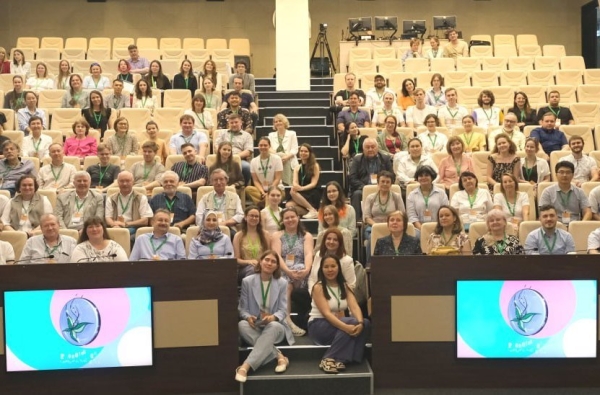
Tajik researchers earned international recognition for their advancements in plant genetics at the International Conference on Genetics, Biotechnology, and Plant Breeding, held in Novosibirsk from July 2 to 5. The event brought together around 400 scientists from 17 countries.
Tajikistan’s delegation presented cutting-edge research on drought- and disease-resistant varieties of potato, Jerusalem artichoke, and wheat—crops crucial to the country’s food security and agricultural resilience.
Among the speakers was Professor Qurbonali Partoyev from the Institute of Botany, Plant Physiology and Genetics at the National Academy of Sciences of Tajikistan. He delivered a presentation on newly developed potato varieties, emphasizing the role of modern technologies in breeding strains capable of withstanding harsh conditions.
One of the featured potato varieties can yield up to 45 tons per hectare, a significant achievement given that potatoes are a staple food in Tajikistan. These innovations are expected to have a major impact on the country’s agricultural productivity and food sustainability.
Another standout presentation came from Safarmad Mirzoali, a lecturer at Tajik State Pedagogical University named after Sadriddin Ayni. He introduced research on Jerusalem artichoke—a resilient root crop well-suited to Tajikistan’s climate. Capable of yielding up to 30 tons per hectare, the plant is rich in inulin, a compound beneficial for dietary use and medicine. It also has potential applications in biofuel production and is known to help restore depleted soils.
Bakhtovar Sattorov, a researcher at the Plant Physiology and Genetics at the National Academy of Sciences of Tajikistan presented his work on fast-maturing, drought-resistant wheat varieties. He emphasized the importance of adapting crops to the country's increasingly water-scarce environment, highlighting that such innovations are crucial for maintaining food security amid climate change.
All Tajik participants received international certificates, and their presentations were met with positive responses from foreign colleagues, affirming the high caliber of Tajikistan’s scientific community. Their work is seen as offering practical solutions not only for domestic agriculture but also for broader international challenges.
“In the face of global challenges—climate change, water scarcity, and threats to food security—our research is more relevant than ever,” Professor Qurbonali Partoyev told Asia-Plus. “Tajik scientists are ready to contribute to the sustainable development of agriculture and to improving people’s quality of life.”
The recognition of Tajik scientists at such a prominent international platform underscores the growing importance of regional research in addressing global agricultural challenges.




